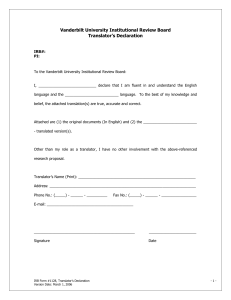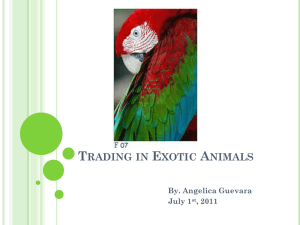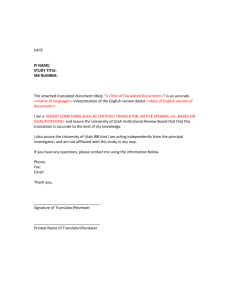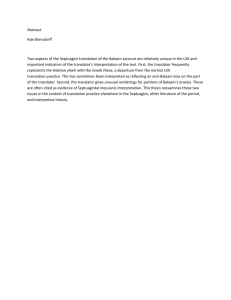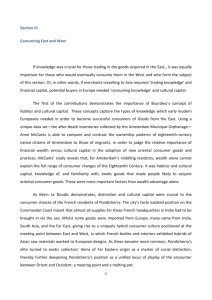201-3
advertisement
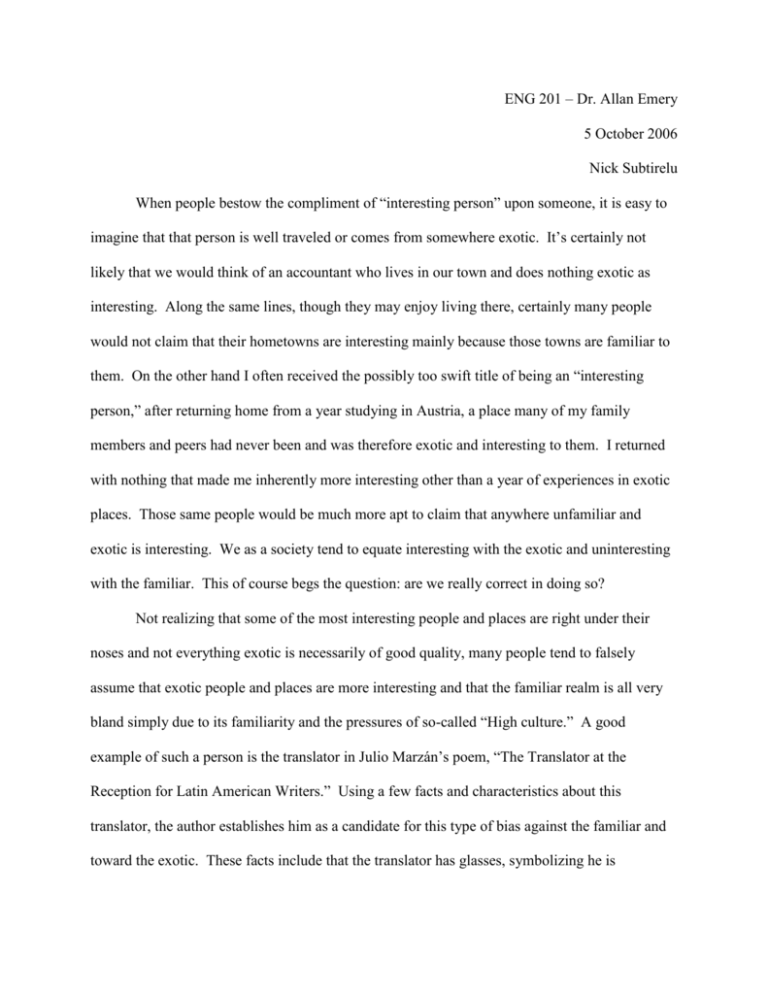
ENG 201 – Dr. Allan Emery 5 October 2006 Nick Subtirelu When people bestow the compliment of “interesting person” upon someone, it is easy to imagine that that person is well traveled or comes from somewhere exotic. It’s certainly not likely that we would think of an accountant who lives in our town and does nothing exotic as interesting. Along the same lines, though they may enjoy living there, certainly many people would not claim that their hometowns are interesting mainly because those towns are familiar to them. On the other hand I often received the possibly too swift title of being an “interesting person,” after returning home from a year studying in Austria, a place many of my family members and peers had never been and was therefore exotic and interesting to them. I returned with nothing that made me inherently more interesting other than a year of experiences in exotic places. Those same people would be much more apt to claim that anywhere unfamiliar and exotic is interesting. We as a society tend to equate interesting with the exotic and uninteresting with the familiar. This of course begs the question: are we really correct in doing so? Not realizing that some of the most interesting people and places are right under their noses and not everything exotic is necessarily of good quality, many people tend to falsely assume that exotic people and places are more interesting and that the familiar realm is all very bland simply due to its familiarity and the pressures of so-called “High culture.” A good example of such a person is the translator in Julio Marzán’s poem, “The Translator at the Reception for Latin American Writers.” Using a few facts and characteristics about this translator, the author establishes him as a candidate for this type of bias against the familiar and toward the exotic. These facts include that the translator has glasses, symbolizing he is attempting to establish himself in a class of academics and high culture. One other basic fact is that he is speaking Spanish freely with others, especially the speaker of the poem who is obviously fluent in English, demonstrating that he is looking to break away from his familiar language presumably English. The translator also blatantly expresses his pursuit of the exotic with the question he poses to the speaker in the poem; namely that he inquires about the speaker’s country of origin, expecting to hear something exotic as indicated by “his curiosity” (784 – line 3). He is, however, disappointed to find that the speaker is from “Puerto Rico and the Bronx,” something that he obviously considers to be familiar, cliché, or uninteresting judging by his reaction of “Spectacled downward eyes” (784). It is made clear that the translator was interested in the conversation with the speaker and that he finds the speaker intriguing until he asks where the speaker comes from, indicating that the only thing he finds uninteresting about the speaker is his or her country of origin. After the moment of disappointment has passed, he turns away from the speaker to reacquaint himself with the hostess, with whom he has presumably already been speaking and who is probably more exotic, while offering her praises mainly because he finds her origins interesting. If the translator had not already succeeded in making himself look completely biased against the familiar, the speaker in the poem certainly bestows upon him that image using a rather lengthy simile. This simile, describing the disappointment of someone who has invested “A sizeable intellectual budget,” in order to capture on film the exotic “Mayan pyramid grandeur” and other equally exotic and interesting things instead being given a script “Meager in the profits of high culture” (784-785) is found in lines 9-24. Through this simile, the speaker points out more about the translator than that man reveals about himself. His expectations are very loftily set because they are compared to such things as “indigenes whose ancient gods and comet-tail plumage inspire a glorious epic of revolution across a continent” (784); but also the speaker’s failure to meet those expectations are paralleled with the social documentary, which to the translator is uninteresting. The author offers a rather obvious explanation for the translator’s disappointment, namely that the speaker is presumably “meager in the profits of high culture” (784), due to the fact that he or she comes from Puerto Rico and the Bronx, both of which are rather unexotic. While the simile and basic facts are busy setting up a situation that sounds as though the translator may be correct in his assumptions, the subtle diction of the poem tells a much different story. In the first stanza the author makes use of several phrases that indicate feelings of coldness, namely: “Air-conditioned introductions,” “Breezy Spanish conversation,” and “fan his curiosity” (784), all of which make reference to some form of coolant. This is a subtle stab by the author directed at the translator, indicating he is rather cold and calculating in his search for the exotic and interesting. Therefore this cold nature points to his lack of feeling for the familiar, and that he probably only warms up to people from far away, exotic, and interesting places. The author then takes one final stab at the general idea of being biased toward the exotic when the speaker relates that the translator praises the hostess for “The uncommon quality of her offerings of cheese” (784). Such diction serves two purposes. On the one hand the elevated and exaggerated language for describing something like cheese demonstrates the shaky grounds on which the translator bases his interest in the hostess, namely on her being from some exotic place. On the other hand the word “cheese” is not only referring to the fact that the hostess is probably serving some cubed samples of dairy product, but it takes on a second meaning of unsubstantial or poorly done literature which is based solely upon appeals to the exotic and interesting without employing any actual literary skill.

